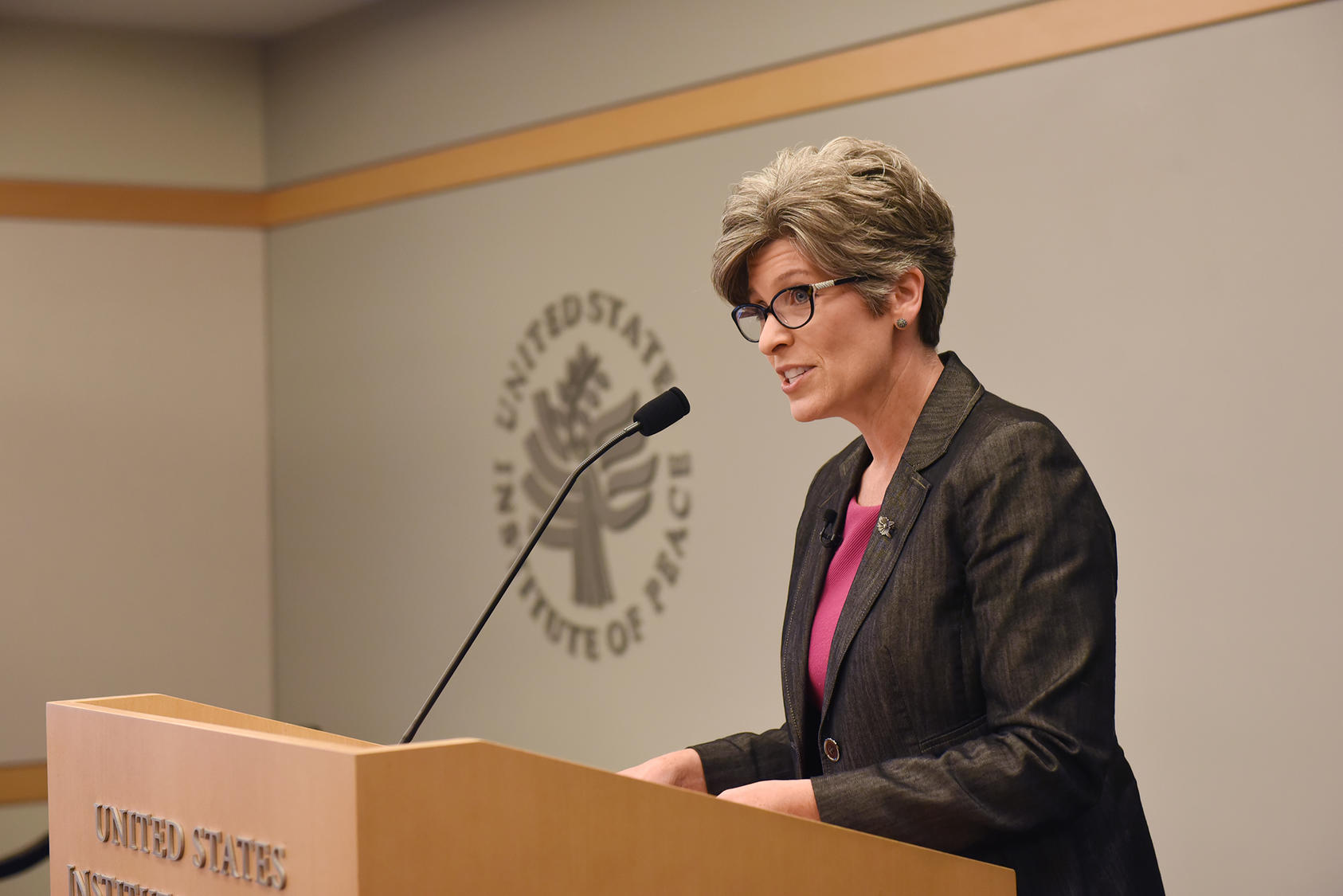Iraq Mission Not Over for U.S., Senator Ernst Says
Terrorism Threat, Regional Stability Demand Continued Presence, According to Senator
U.S. Senator Joni Ernst said that despite Americans’ weariness with U.S. involvement in Iraq, concerns about terrorism and regional stability make a continuing military commitment in the country a necessity.
“Our first and our highest priority must be to ensure that the Iraqi government has the equipment and the training to conduct sustained and resilient counterterrorism operations,” Ernst said at the U.S. Institute of Peace. “Unless we are confident in Iraq’s capacity and ability to defend themselves, U.S. presence in Iraq will remain necessary to protect our interests.”

An On-the-Ground Perspective
Ernst, who got an on-the-ground view of Iraq as commander of a transport company operating out of Kuwait in 2003, said the experience left her with a keen desire to promote peace and prosperity in a region devastated by war over the past 15 years. Ernst, an Iowa Republican, said that from her position as a senator and chair of the Armed Services Committee’s subcommittee on Emerging Threats and Capabilities, she is working to be a part of the solution for Iraq.
Beyond counterterrorism, America’s interests in Iraq include blunting the influence of the country’s neighbor, Iran, and Russia, which she said is seeking inroads. Ernst said she rejected the premise that the U.S. and Iran shared any strategic interest simply because both wanted to defeat ISIS. Iran’s strategic goals will be impeded by a strong, prosperous, Western-allied Iraq, which will depend to a large degree, she said, on the U.S. staying the course in its mission to train, advise and assist Iraqi forces.
If the U.S. turns its back on the country, cutting the security assistance that has significantly improved its military capability, terrorism could re-emerge and the government will look elsewhere—and very likely to Russia, she said.
Supporting Iraq’s Development
Ernst said the U.S. must now find ways to support Iraq’s development as a free and democratic society. Specifically, she said the U.S. must work with international partners to support ethnic and religious minorities, who she said had suffered the most from ISIS and other violence in the country. Rather than providing blanket funding for stability operations, the U.S. should make a priority of those communities through USAID rather than wait for the United Nations and other international organizations, she said.
“To accomplish this, the U.S. must work with groups and partners, such as the U.S. Institute of Peace, who have the relationships and access necessary to reach these communities in areas still plagued by violence,” Ernst said.
While Americans can help spur discussions and offer guidance on how Iraq might become a more peaceful country, “we can’t win the peace for them,” Ernst said. “We can’t want it more than they do.” She compared peacebuilding in the country to the U.S. military mission of training, advising and assisting Iraqi soldiers. The program has had success in pushing Iraqi leaders to the fore rather than having their troops look to Americans. The same dynamic needs to unfold in efforts to make peace in the fractured country, she said.



